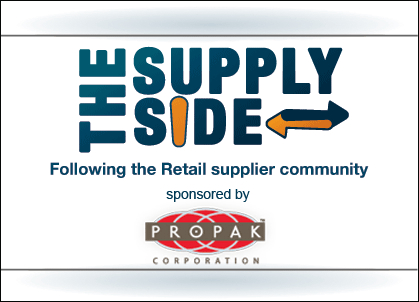The Supply Side: Local startup SyncdUp plays matchmaker for suppliers and distributors
by May 12, 2016 3:22 pm 400 views

Editor’s note: The Supply Side section of Talk Business & Politics focuses on the companies, organizations, issues and individuals engaged in providing products and services to retailers. The Supply Side is managed by Talk Business & Politics and sponsored by Propak Logistics.
–––––––––––––––
Based on the premise of dating site eHarmony, Clint Lazenby and a silent financial partner recently launched SyncdUp. It’s a matchmaking business but it’s not about finding love, it’s about helping suppliers and manufacturers increase sales through wider broker distribution networks.
Lazenby has logged nearly two decades in the supplier arena having run international operations for Lamb Weston, a division of ConAgra, and World Kitchen while working in domestic sales to Walmart for Scotts Miracle Gro and Johnson and Johnson.
“When working abroad I saw time and time ago how difficult it was for small manufacturers to expand their distribution footprint because the broker network that facilitates entry into new retailers and geographical markets is highly fragmented,” Lazenby told Talk Business & Politics.
The question is, Lazenby noted, “Where are the reputable brokers and which ones are the best fit for a particular company?”
SyncdUp is a website portal, designed by Jett Castro, that essentially works like eHarmony or Angie’s List or any number of subscription based services. Lazenby said the idea was floating around in his head for at least eight years and now that his other venture #OnShelf is up and running efficiently the time was right to launch SyncdUp. It is being funded in part by revenues from Lazenby’s other venture.

He equates the experience to trying to rent an apartment in downtown San Francisco from a want ad in the newspaper – where there is no level of trust and no expectation of quality. But then along comes Airbnb which created a platform that enables this trust and provides an expectation of quality and it’s changed the way consumers rent rooms.
“In the retail world it’s very much the same way suppliers want to know where all the brokers are located and get some level of guaranty about their level of expertise. For instance, a broker says he calls on Home Depot but he lives in Detroit, how does that work or how it is possible? Or say a broker wants to live in Atlanta and call on Home Depot but that’s only 20 hours of work a week, then they start saying yes to other clients because they may know a buyer at K-Mart or Target, but then they are really working out of their strike zone, swinging at everything they see,” Lazenby said.

Lazenby said manufacturers or suppliers pay a $100 monthly subscription rate and then they share with SyncdUp exactly how and where they want to expand. Analytical software then finds the best matches for a particular goal. It’s then up to the supplier to contact and negotiate adeal with the broker. SyncdUp is not part of that process.
Brokers can join the site for no charge but their bio is vetted to ensure total transparency between the parties, Lazenby said.
In the three weeks since the company launched Lazenby said more than a dozen suppliers have signed on for help and three dozen representatives/brokers have registered on the site. He hopes the site will help ease the cumbersome process many small manufacturers face in trying to grow their sales in new markets.
“Companies can waste a lot of time and money trying to go find representation. SyncdUp give companies more choices, far better choices,” said Selling to the Masses founder Matt Fifer. “The best representatives are also the busiest, and those that aren’t busy are typically not among the best but the ones most accessible. SyncdUp democratizes the process and makes it easier for someone to get the best possible representation for their products.”
Fran Free, founder of Oh Baby, which was recently acquired by Fayetteville-based Blackhive, said her experience recruiting brokers in the natural food space was different from what she’s finding in mass retail.
“When Oh Baby got into Whole Foods’ southern pacific region, I went to my buyer and asked them to recommend brokers they liked to work with. They gave me a list and I interviewed several of them and then made a hire,” Free said.
She said in the natural food space those brokers do more than just call on the retailer. They are also physically in the stores at least once a month and overseeing the merchandising of the product.
“I am finding out at Blackhive that in mass retail those are two separate specialties. I can see it’s more difficult to navigate in mass retail,” Free said.
